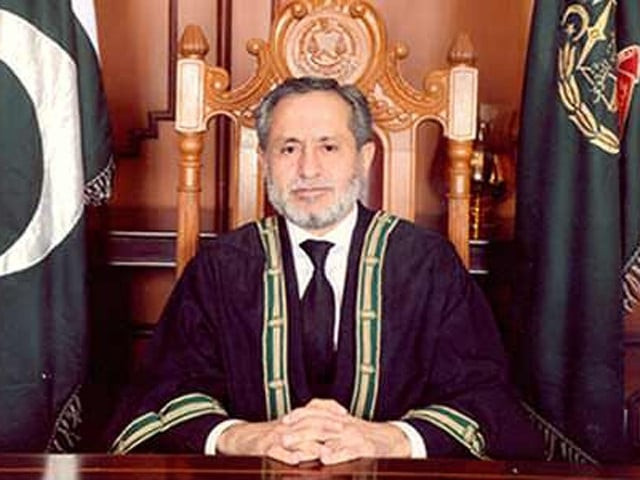Judge highlights lack of rules to govern CBs
Justice Mandokhail says all judges should be made part of CBs

Justice Jamal Khan Mandokhail, who is also a member of a committee that forms constitutional benches (CBs) of the Supreme Court, has raised questions on the absence of rules regulating CBs practice and procedure.
During the hearing of the reserved seats case on Monday, Justice Mandokhail asked counsel for SIC Faisal Siddiqi to read provisions of Article 191A, which were inserted through the 26th Constitutional Amendment of 2024.
The counsel read Article 191A (6), which says that notwithstanding anything contained in the Constitution but subject to law, the judges nominated under clause (1) may make rules regulating the practice and procedure of the CBs.
This provision reflects that CB judges will frame rules regarding the regulation of the benches.
However, Justice Aminuddin Khan responded that the word "may" has been used in that provision, which shows that rules framing is not mandatory.
Monday's hearing in the reserved seats case reflects that the CB committee comprising Justice Aminuddin Khan, Justice Jamal Khan Mandokhail and Justice Muhammad Ali Mazahar is divided on the question of framing of rules for the CBs.
According to the Supreme Court's November 20, 2024 press statement, the SC registrar was tasked to prepare draft rules regulating the practice and procedures of the CBs in consultation with Justice Muhammad Ali Mazhar, with the final draft to be reviewed by the committee for approval.
However, it is not clear whether the SC registrar shared the proposed rules with the committee for final approval. The committee constituted under Article 191A (4) of the Constitution had convened its third meeting on November 13, 2024 under the chairmanship of Justice Aminuddin Khan.
The meeting, attended by Justice Mandokhail, Justice Mazhar, and the SC registrar, had deliberated on several critical matters aimed at improving the efficiency and transparency of case management, particularly for the CBs.
Lawyers are already raising their voice over the absence of rules for nomination of judges to the CBs as well as the constitution of the CBs, as mentioned in Article 191A (6) of Constitution.
CJP Yahya Afridi, in his capacity as the chairman of the JCP on March 3 formed a committee to draft an objective criterion for selecting judges for the CBs under Clause (4) of Article 175-A and for selection of judges for the CBs under Articles 191-A and 202-A.
Justice Mandokhail is heading the committee. It is not clear whether the committee has finalized its rules. It has been witnessed that in the absence of rules, some SC judges, who are not in the good books of the executive, have been excluded from the CBs.
Three senior SC judgesCJP Afridi, Justice Syed Mansoor Ali Shah and Justice Munib Akhtarare excluded from the CBs without reason. Even Justice Mandokhail on Monday expressed desire that all judges should be nominated for the benches.
If all judges are included in the CBs then the composition of the CB committee will also change and the present members will become irrelevant. Now a debate has started as to why some judges are showing reluctance to support the nomination of all SC judges for the constitutional benches.
Even no explanation has been given for excluding the six judges who were part of the original bench that heard the case from the larger bench hearing review petitions in the case. To ensure transparency, there is a need that rules should be framed for the nominations as well constitution of the CBs
Now all eyes are on the 11-member larger bench to see whether it accepts or rejects objections to the bench which does not include the judges, who were part of the earlier bench without any valid reason.
Some lawyers believe that the CB committee should at least nominate these six judges in the larger bench hearing reserved seats case. At least the committee should shift the burden and refer the matter to the JCP.
It was witnessed that the bench was not properly constituted in Article 63A case. Now PTI lawyers accuse that reversal of judgement on the interpretation of Article 63A of Constitution had provided facilitation to the executive for passing the 26th Constitutional Amendment.





















COMMENTS
Comments are moderated and generally will be posted if they are on-topic and not abusive.
For more information, please see our Comments FAQ